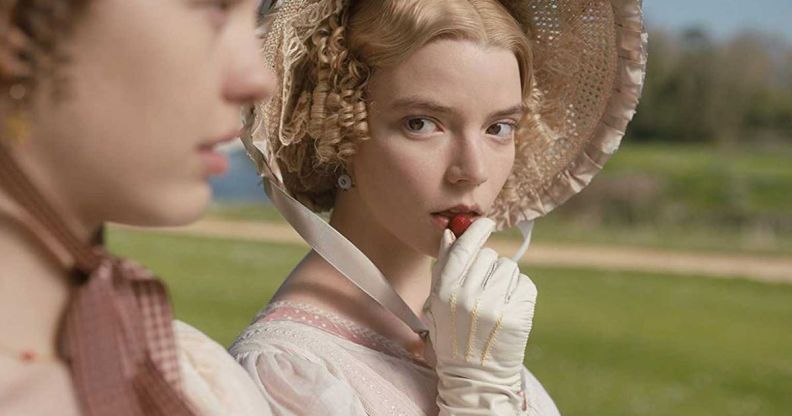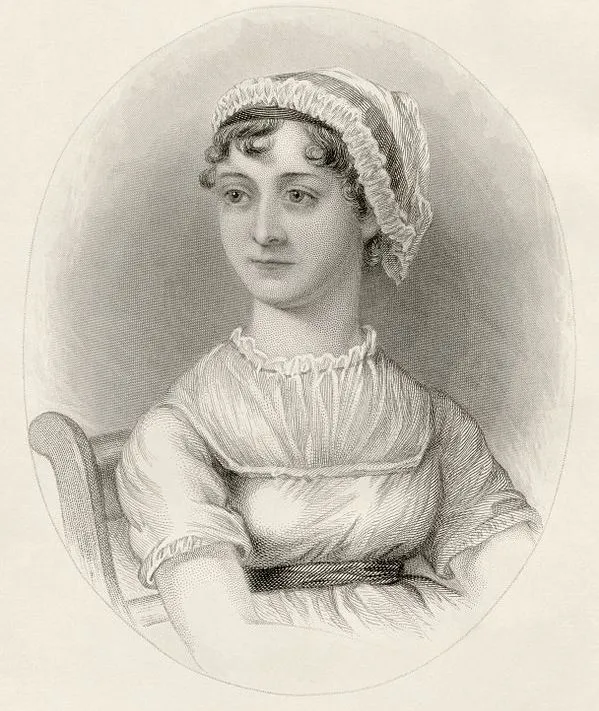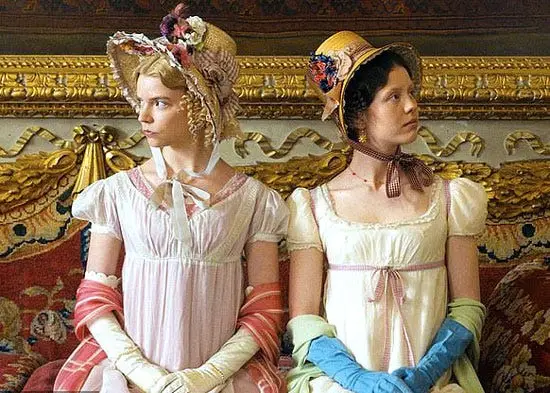Was the iconic character Emma Woodhouse a lesbian? Some Jane Austen fans think so

Emma takes a lingering, flirty look at Harriet in the 2020 adaptation of Emma (Working Title Films)
“Emma (Woodhouse), the Jane Austen character and the story, is gay and I will fight you on this. It is undeniable. Plain as day. She should’ve been with Harriet (who is bi),” states the bio of one Tumblr account dedicated to exploring the sexuality of the famous character (titled, Emma Is Undoubtedly Gay).
It’s one of many Tumblr accounts, Reddit threads and other online discourse about the titular character of Jane Austen’s 1815 novel Emma. Like most of Austen’s books, Emma explores the challenges of being a genteel woman living in Georgian-Regency England in a light-touch, comedic way.
So, why do many Austen fans see Emma as a gay character, and believe the book to have queer themes? Let’s take a deep-dive to find out.
Is Emma Woodhouse gay or bisexual?

Many people see the tale of Emma as a comp-het (compulsory heterosexuality) allegory, with central character Emma Woodhouse ending up with a man despite her sapphic tendencies.
Adrienne Rich first explored this term in her 1980s essay Compulsory Heterosexuality and Lesbian Existence, in which she argues that the patriarchal framework of society enforces mandatory male-female attraction in a way that erases and suppresses, among other things, queer identities and desires. It is why some lesbian women pursue relationships with men: they are simply not allowed to consider women as a romantic option.
When we meet Emma Woodhouse, she’s a compulsive twenty-year-old matchmaker, obsessed with setting her friends up with suitable men. At the beginning of the novel, Emma Woodhouse’s friend and former governess, Miss Taylor, has just married Mr. Weston – and Emma takes credit for the matchmaking.
But having grown up motherless, Mrs. Weston is the closest thing Emma had to a mother, so it’s also a sad occasion for the heroine as well. Thankfully, she’s distracted by Harriet coming into her life.
Harriet Smith is an attractive girl and she’s the reason so many people see Emma as a lesbian tale. Harriet and Emma form an attachment to each other that is more like a crush than a friendship. Harriet’s even given a room in Emma’s house. Mr. Knightley (who – spoiler alert – Emma will end up marrying) disapproves, but Mrs. Weston tells him that he has no idea of the comfort a woman can find in a companion of the same sex. Ahem.
What do fans think about the ‘Emma is a lesbian’ theory?

As mentioned above, the Austen messageboards – and there are plenty of them – are awash with pieces of text from the novel that are used to back up the idea that Emma might, at the very least, be bi.
One Reddit user said: “I started the book today and literally just googled if Emma has a crush on Harriet because of the way she describes her when Harriet is first introduced. Accidentally just read some spoilers, but I’m glad I’m not the only one who sees something sapphic going on!”
There’s even a lesbian sequel to Emma, called Emma in Love, by Emma Tennant. In the sequel, Emma’s marriage to Mr Knightley is unconsummated and not in any way a success. In search of affection, she falls passionately in love with a glamorous French baroness.
One of the posts on the Tumblr mentioned above reads: “Thinking about Emma again and how much Emma is clearly attracted to Harriet and vice versa. They have queer energy. Not to mention Knightley. Emma and Knightley are each other’s beards lmao.”
Actually, Emma’s sexuality is up to you
At the end of the day, you’re probably visiting this article because you want to know if Emma Woodhouse is gay, a lesbian, or bisexual. The answer is – none of them. Or all of them. Or whatever you would like her to be.
“The Death of the Author” is a literary theory proposed by French literary critic Roland Barthes. It suggests that once a piece of writing is created and released to the world, the author’s intentions and identity should no longer limit or define its interpretation.
In simpler terms, it means that the meaning of a text doesn’t solely depend on what the author intended when writing it. Instead, readers can find their own meanings in the text, regardless of the author’s intentions or background. The focus shifts from the author’s authority over the text to the reader’s interpretation and engagement with it.
TL;DR, if you want Emma Woodhouse to be a lesbian and in love with Harriet, then she is. Congratulations!
How did this story make you feel?

